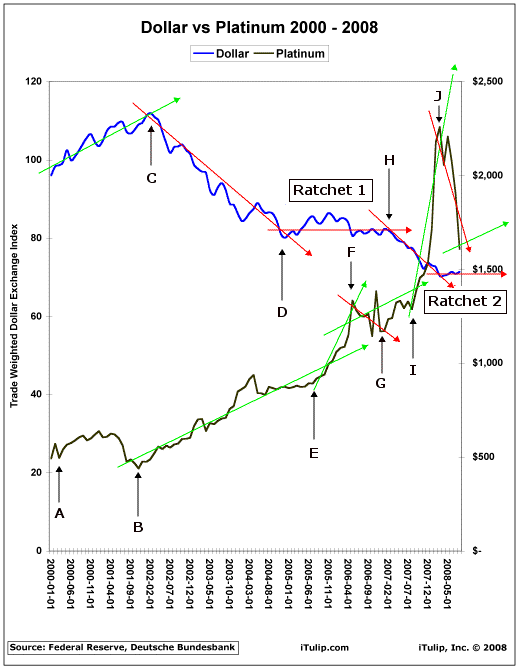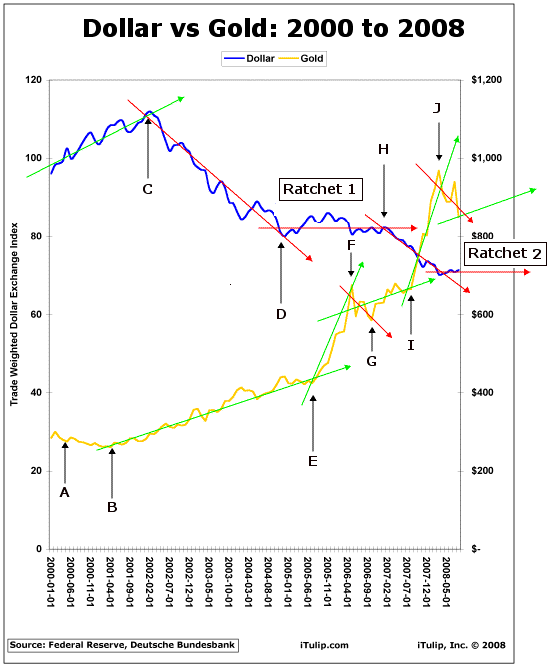Re: Ian Gordon and his Dow 1000 forecast
OK, here's a puzzle for you Chomsky. Why isn't the USD "behaving" according to the iTulip script? I know all the reasons, from six months ago. But why is it **still** not behaving according to script? You maybe need to substantiate your position on that, because you keep implying it's coming down tomorrow. See how it gets turned around? You are sitting on a pile of assumptions yourself which have yet to materialize. Now what are you going to do in six months if the stock market simply decides not to follow your planned script?
OK, here's a puzzle for you Chomsky. Why isn't the USD "behaving" according to the iTulip script? I know all the reasons, from six months ago. But why is it **still** not behaving according to script? You maybe need to substantiate your position on that, because you keep implying it's coming down tomorrow. See how it gets turned around? You are sitting on a pile of assumptions yourself which have yet to materialize. Now what are you going to do in six months if the stock market simply decides not to follow your planned script?
Originally posted by Chomsky
View Post






Comment